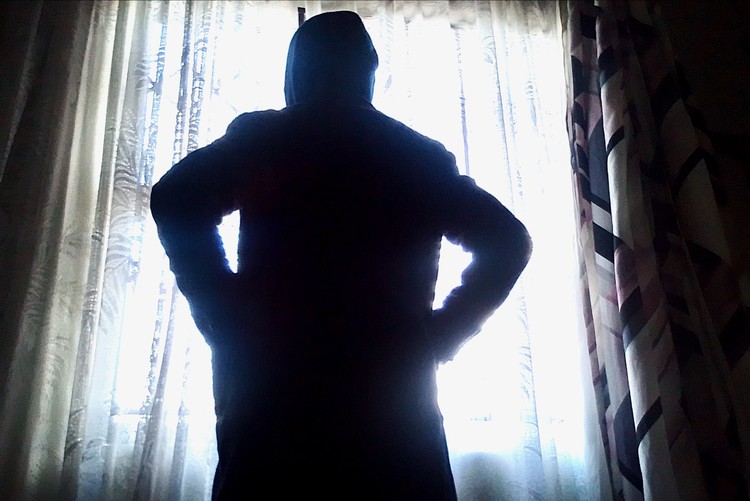
10 April 2024
Describing himself as a “monster killer”, this man told GroundUp how the extortion syndicates are thriving in Philippi, Cape Town. Photo: Sandiso Phaliso
Last month, GroundUp reported how a hair salon owner in Philippi, Cape Town, was shot and killed at his place of work, apparently because he refused to pay protection fees.
Western Cape SAPS spokesperson Frederick Van Wyk said detectives were investigating, but the motive was yet to be established and arrests were yet to be made.
But witnesses told GroundUp that just before he was shot, they heard the salon owner saying he was refusing to pay the protection fees and they heard the killers saying they were going to send a message to other business owners.
It is an open secret that businesses in Philippi have to pay extortion racketeers.
A member of one of these extortion syndicates spoke to GroundUp on condition that his identity not be revealed. He is 29. He dropped out of school in grade 12. His parents were unemployed.
He said he is one of eight members of a syndicate operating in Philippi. Their area is in Browns Farm, which is divided into four turfs, each with its own extortion syndicate.
All the gang members are armed with illegal weapons. Some have more than one gun.
Our source was armed when he spoke to GroundUp. He said his gun was taken from a rival gang they had wiped out.
They demand R2,000 a month from every Somali and Pakistani owned spaza, furniture and electrical appliance shop in their area. They also extort from roadside vegetable and meat stalls. They assault anyone who resists and they will kill anyone who does not pay up.
He said they bring in about R50,000 a month. They each take about R3,000 and then blow the rest on drugs, liquor and expensive clothing. He saves some money for his family, he said.
He said if their “clients” want to stop operating their businesses because the protection fees are crippling them, then the syndicate will give them capital to continue running their business and pay them a wage, taking the profits.
This modus operandi was previously confirmed to GroundUp by a victim who said, “They give you money to buy stock and you end up working for them, and when you refuse to work for them your life becomes in danger.”
Turf wars and blood feuds are the biggest challenge for the syndicates, our source said. When we interviewed him he was lying low because a rival gang was hunting him.
He has been in and out of jail and says he is currently facing charges of robbery and murder in the Wynberg Magistrates’ Court. Previous cases were dropped because of lack of evidence. He is out on bail.
He described himself as a “monster killer”. He said he has killed people on the instruction of the gang leadership.
He claims he has no alternative to a life of crime. He says he is unemployable because of his criminal record, and the R350-a-month social grant is impossible to live on – “it’s a lunch for someone who is working”.
“People have children, families and their own needs to maintain like the political government officials live their lives. You can’t even buy underwear with R350 … I can’t buy my children clothing and feed them.”
“With no salary we are led to the life of committing crime. If the government says we must not commit crime, what is it expecting us to do?”
“You can’t say to a person that they must stop crime and sit at home without a job. How are they going to survive? Our parents are unemployed and collect metal for the scrapyard to make a living, and how do you think that makes people feel?”
He doesn’t believe the government is truly committed to ending crime. He sees the whole prison system as a scam, a lucrative business making billions for connected people out of contracts from building prisons to servicing them.
It was clear that he is bent on a life of crime and sees no way out.